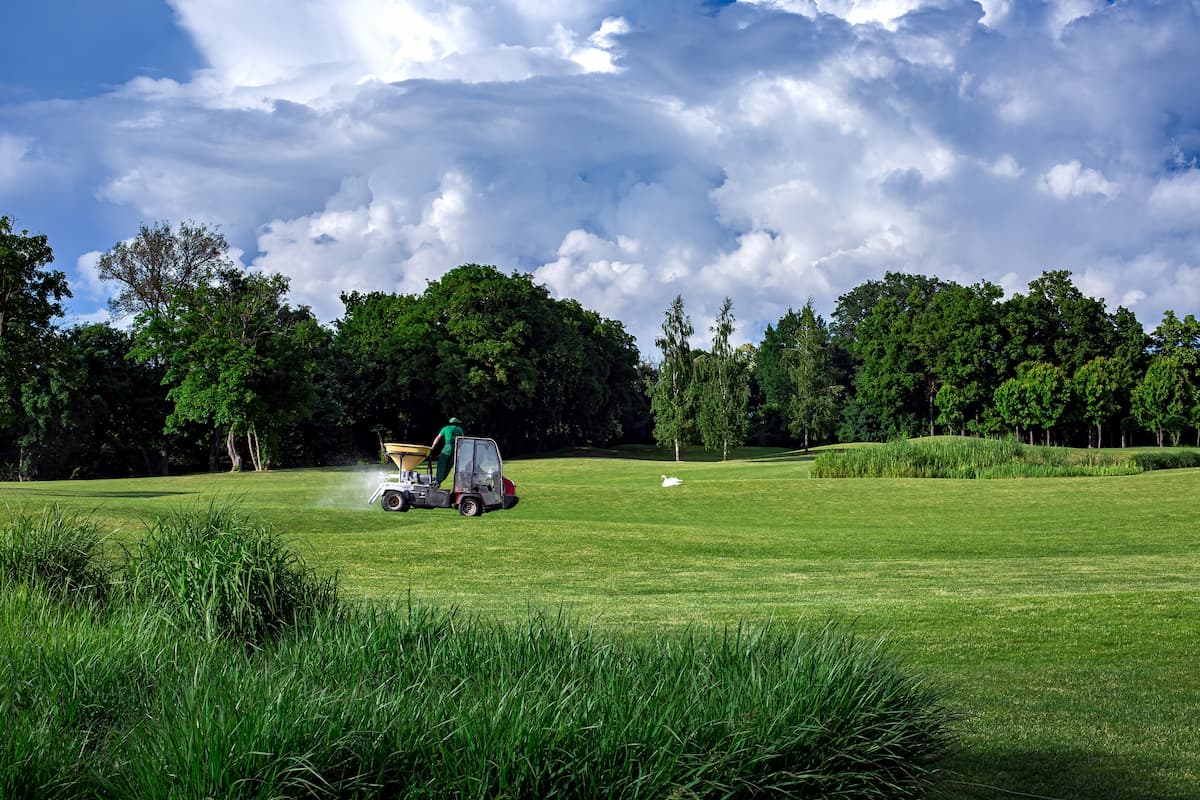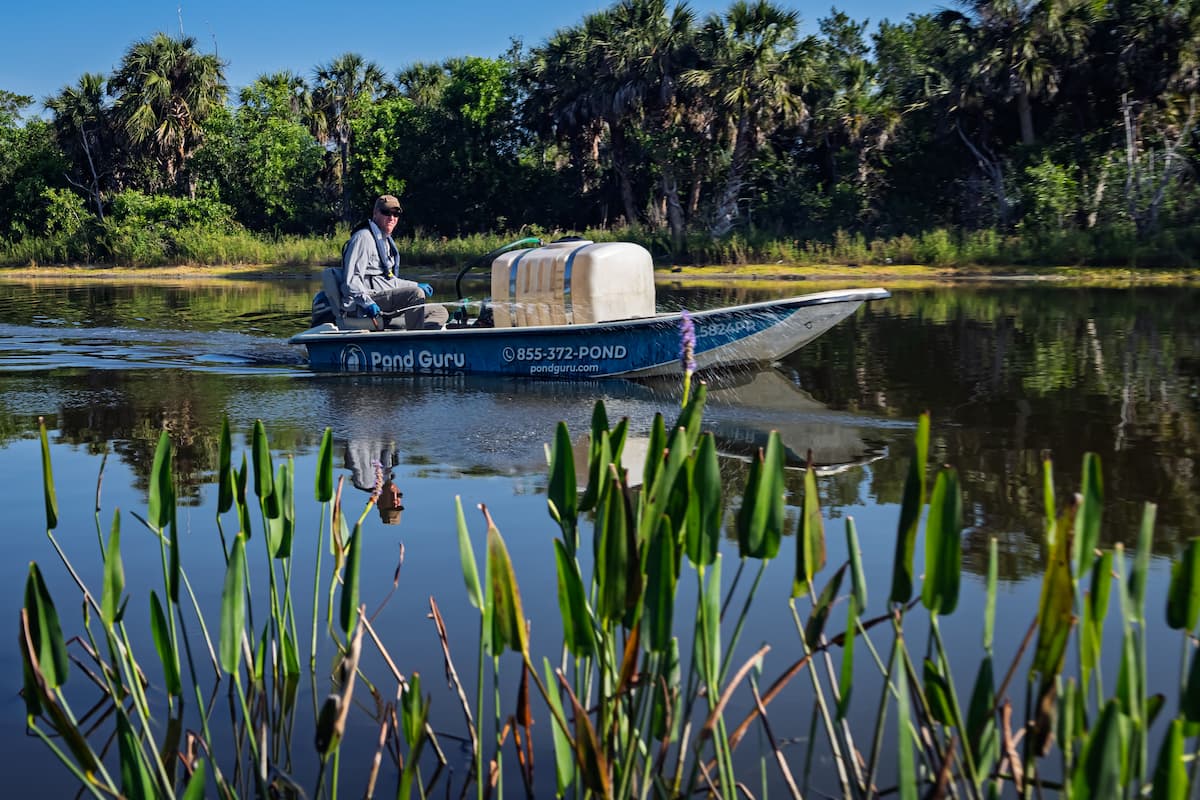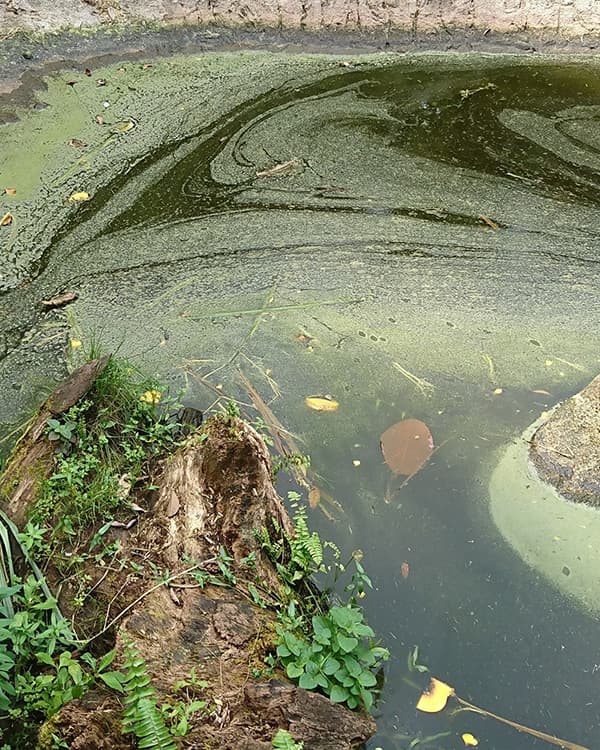Fertilizer runoff is a major contributor to poor pond health and ugly algae blooms. Whether you manage a golf course pond, HOA water feature, or private property, preventing fertilizer runoffis key to maintaining a balanced ecosystem. In this article, you’ll learn what causes agricultural runoff, why fertilizer is bad for ponds, and how Pond Gurucan help restore and protect your water.

Fertilizer runoffhappens when excess nutrients from lawn and garden fertilizers wash into nearby ponds, streams, or lakes through rain or irrigation. These nutrients—mainly nitrogen and phosphorus—fuel overgrowth of algae, turning ponds into nutrient-rich pondsthat suffer from oxygen depletionand murky water.
Uncontrolled fertilizer application, whether from landscape fertilizeror larger agricultural sources, can lead to:
These conditions signal an unhealthy pond ecosystem that demands attention.
Agricultural runoffisn’t confined to farms—it often comes from golf courses, residential lawns, and landscaping projects. Whether you’re a property manager or HOA board member, runoff from garden fertilizercan threaten nearby ponds. Taking steps to limit nutrient flow is essential for sustainable pond management.
Before spotting the signs, it’s important to understand why oxygen levels might drop in the first place. Here are some of the most common culprits:
Organic matter build-up, such as decaying leaves or waste
Here’s how to safeguard your pond environment:
Choose slow-release or phosphorus-free fertilizer and apply only what plants need.
Fertilize during dry periods and avoid irrigating or fertilizing before rain.
Plant native grasses or shrubsaround the pond edge to filter runoff.
Especially on golf courses, targeted fertilization reduces wasted nutrients.
Keep watering efficient and avoid over-watering to reduce runoff.

Even with best practices in place, runoff may still occur. Pond Guru’s proven services include:
Ongoing monitoring as part of comprehensive golf course pond management

To preserve pond health, consider:
Pond Guru offers a full-service wetland patrol and maintenance program specifically designed for:
Our team specializes in aquatic weed removal, erosion control, water quality management, and more. We also work hand-in-hand with environmental consultants and county regulators to keep your property in compliance with MS4 and NPDES regulations.
Dealing with duckweed in a pond is not a one-time event. If you’re struggling with repeated outbreaks or want a professional, eco-friendly solution, contact Pond Guru. We offer expert site visits, personalized pond treatment plans, and long-term duckweed control strategies.
If you notice persistent algae blooms, foul odors, or cloudiness, it’s time to call Pond Guru. Their experts will:
Taking proactive steps helps you:
Stop letting fertilizer runoff threaten your pond’s health. Book a consultationwith Pond Gurutoday for nutrient testing and an expert site visit. Let’s keep your pond thriving.

A buffer of native grasses 6–10 ft wide filters nutrients effectively before they reach pond water.
Test water semi-annually—early spring and late summer—to track nitrogen and phosphorus levels.
Yes. Even slow-release fertilizers can leach into runoff if overapplied or used before rain.
Rain gardens slow water flow and absorb runoff, helping reduce nutrient load entering ponds.
Pond Guru offers both algae removal and long-term prevention through nutrient testing, buffer planting, and maintenance planning.
fish, water, pond, pump, koi pond, plant, algae, water garden, waterfall, aquatic plant, drainage, debris, flood, garden, bacteria, filtration, koi, ecosystem, soil, lake, landscape, water quality, maintenance, fountain, inspection, construction, nutrient, beauty, oxygen, ph, lighting, garden pond, stormwater, stream, plumbing, gravel, aquascaping, aquatic ecosystem, maintenance services, renovation, water treatment, fish pond, sludge, nitrate, fish kill, aesthetics, hardscape, pond cleaning service near me, pond cleaners near me, koi pond cleaning near me, fish pond cleaning service, pond cleaning company, small pond cleaning service, fish pond cleaning, pond servicing, cleaning pond algae, clean up a pond, pond cleaning service, pond cleaning, koi pond cleaning, koi pond cleaning service, pond clean out, ice, leaf, matter, wetland, organic matter, tank, decomposition, chlorine, pressure, fresh water, ammonia, request, water maintenance, water filter, water clarity, tap water, animal, garden hose, aeration, wildlife, swimming pool, rain garden, cleaner, waste, clay, barley, garden design, hose, green